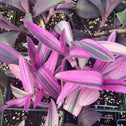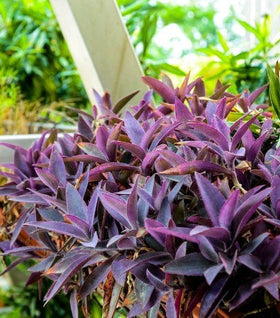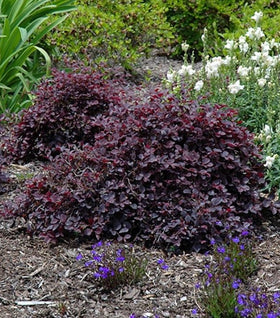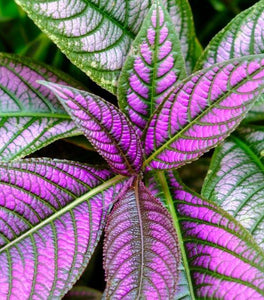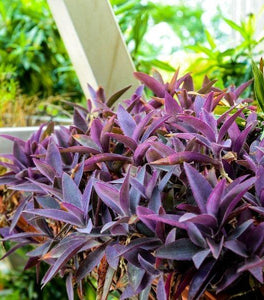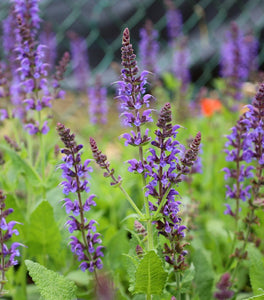Images Depict Mature Plants
Variegated Purple Heart Plants for Sale Online
The Variegated Purple Queen Plant (Setcreasea pallida) is an annual plant known for its bright purple and pink variegated foliage, although it also produces small pinkish-purple flowers in the summer. It is very easy to grow and is an excellent ground cover in a mixed garden, as long as it is planted in a sunny location. Also popularly used as the "spiller" in a container garden or hanging basket.
| Hardiness Zone: | 8-11 |
|---|---|
| Mature Height: | 8 to 12 Inches |
| Mature Width: | 18 to 24 Inches |
| Classification: | Annual |
| Sunlight: | Full sun, partial shade |
| Habit: | Upright, spreading |
| Flower Color: | Pink-purple |
| Foliage: | Purple; variegated |
| Soil Condition: | Well-draining, moist |
| Water Requirements: | Likes to stay slightly dry |
| Uses: | Mass planting, container plant |

How to Care for Variegated Purple Queen Plant
Before you buy a Variegated Purple Heart Plant, make sure to read about the care instructions that are required and recommended to keep this plant healthy and thriving!
How Do I Water Variegated Purple Queen Setcreasea Plants?
Allow the soil to dry out between waterings. A good way to test this is to stick your finger a few inches down into the soil. If the soil is dry all the way through, it is time to water. If you feel moisture, give it a day or two and test again.
What Type Of Fertilizer Do Variegated Setcreasea pallida Require?
Throughout the growing season, apply a liquid fertilizer, such as Bonide Liquid Plant Food, once a month to promote optimal growth.

What is The Best Soil for Variegated Purple Queen Plant?
When planting a Setcreasea pallida, make sure you are selecting a location that has rich, well-draining soil. A soil test can let you know if you need to include nutrient-rich additives such as compost or topsoil when planting.

How Much Sun Do Purple Queen Variegata Plants Need?
Purple Queen Setcreasea pallida variegata Plants prefer full sun to part shade for the best and biggest blooms. This means giving the plant 4 to 6 hours of sun a day, at the least.




